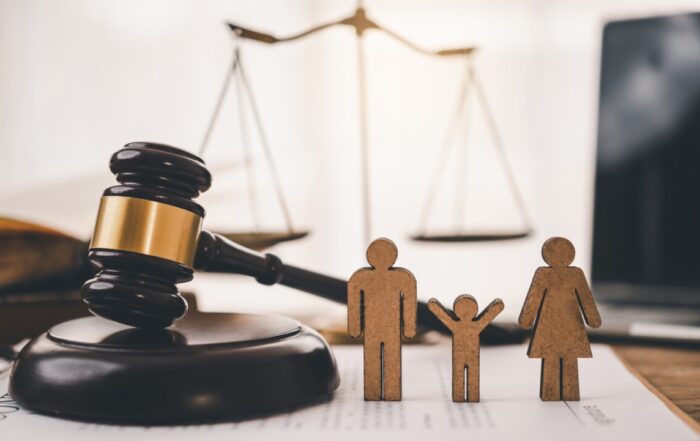What Does a Court Hearing Mean? A Complete Guide
Ready to resolve your legal concerns? Get professional help now with personalized support, Or Call 833-349-4659 for immediate assistance.
Understanding what a Court Hearing Meaning is crucial for anyone involved in the legal system. A court hearing is a formal proceeding where parties present evidence and arguments before a judge. This process helps determine the outcome of a case, making it essential for those seeking justice or resolution.
The Importance of Court Hearings
Court hearings serve several purposes, including:
- Establishing Facts: They allow both sides to present their version of events.
- Legal Arguments: Parties can argue their legal positions, influencing the judge’s decision.
- Decision Making: Ultimately, the judge will make rulings based on the evidence presented.
Understanding the court hearing meaning helps individuals prepare effectively for their cases.
How To Find Case Details
If you’re looking for specific information about a court case, you might wonder how to find case details. Here are some tips:
- Online Databases: Many jurisdictions have online systems where you can search for case information.
- Court Clerk: Visiting or contacting the court clerk’s office can provide direct assistance.
- Legal Aid: Seeking help from legal professionals can also guide you in navigating the system.
However, if your court case is not showing up online, it may be due to various reasons, such as recent filings or privacy restrictions.
What Happens During a Court Hearing?
Understanding what a court hearing means is crucial for anyone involved in the legal system. A court hearing is a formal proceeding where parties present evidence and arguments before a judge. This process helps determine the outcome of a case, making it essential for both plaintiffs and defendants to grasp its significance.
During a court hearing, several key activities take place:
- Presentation of Evidence: Both sides present their evidence, including documents and witness testimonies.
- Legal Arguments: Attorneys argue their cases based on the evidence provided, aiming to persuade the judge.
- Judge’s Decision: After considering the arguments, the judge makes a ruling, which can be immediate or reserved for a later date.
If you’re wondering how to find case details, you can often check online court databases or contact the court directly. However, sometimes a court case may not show up online due to various reasons, such as recent filings or privacy restrictions. It’s important to stay informed about your case’s status.
Key Participants in a Court Hearing: Who’s Who?
Understanding the Court Hearing Meaning is crucial for anyone involved in the legal system. A court hearing is a formal proceeding where parties present their arguments, evidence, and witnesses before a judge. This process helps determine the outcome of a case, making it essential for all participants to know their roles.
Judges and Magistrates
Judges oversee the hearing, ensuring that legal procedures are followed. They make rulings based on the evidence presented and interpret the law. Magistrates often handle minor cases or preliminary matters, serving a similar role in a less formal setting.
Attorneys
Attorneys represent the parties involved, presenting their case, cross-examining witnesses, and making legal arguments. They play a vital role in shaping the outcome of the hearing.
Court Clerks
Court clerks manage the administrative aspects, including scheduling hearings and maintaining records. If you’re wondering How To Find Case Details, the clerk’s office is a great starting point.
Witnesses
Witnesses provide testimony that can influence the judge’s decision. Their accounts are crucial for establishing facts in the case. If your Court Case Not Showing Up Online, it may be due to pending witness testimonies or other procedural delays.
The Importance of Court Hearings in the Legal Process
Understanding the Court Hearing Meaning is crucial for anyone involved in the legal system. A court hearing is a formal proceeding where parties present evidence and arguments before a judge. This process is essential for ensuring justice and resolving disputes, making it a cornerstone of the legal framework.
The Role of Court Hearings
Court hearings serve several important functions:
- Decision Making: Judges evaluate the evidence and make rulings.
- Transparency: Hearings allow public access to legal proceedings, promoting accountability.
- Conflict Resolution: They provide a structured environment for parties to resolve their issues amicably.
Finding Case Details
If you’re trying to understand a specific case, knowing How To Find Case Details is vital. You can often access case information through online court databases or by visiting the courthouse. However, if a court case is not showing up online, it may be due to privacy restrictions or the case being in a preliminary stage. Always check with the court clerk for the most accurate information.
How to Prepare for a Court Hearing: Essential Tips
Understanding the court hearing meaning is crucial for anyone involved in legal proceedings. A court hearing is a formal session where a judge reviews evidence, hears arguments, and makes decisions on legal matters. Preparing adequately can significantly impact the outcome of your case, making it essential to know what to expect and how to navigate the process.
Key Steps to Prepare for Your Court Hearing
- Research Your Case: Knowing the specifics of your case is vital. If you’re unsure about the details, learn how to find case details through court websites or legal resources.
- Gather Documentation: Collect all necessary documents, including evidence, witness statements, and any correspondence related to your case. This preparation can strengthen your position in court.
Troubleshooting Online Resources
If your court case is not showing up online, don’t panic. Sometimes, cases may not be updated in real-time. Check with the court clerk’s office for the latest information. Additionally, ensure you have the correct case number and details to facilitate your search. This proactive approach can save you time and stress before your hearing.
Common Types of Court Hearings Explained
Understanding the meaning of a court hearing is crucial for anyone involved in the legal system. A court hearing is a formal proceeding where a judge listens to arguments, evidence, and testimonies to make decisions on legal matters. Knowing what to expect can alleviate anxiety and help you prepare effectively.
Preliminary Hearings
These hearings determine if there is enough evidence to proceed with a case. They are often the first step in criminal cases and can set the tone for future proceedings.
Motion Hearings
In these sessions, parties request the court to make specific rulings on legal issues. For instance, you might need to know how to find case details if you’re involved in a motion hearing, as this can influence the outcome significantly.
Ready to resolve your legal concerns? Get professional help now with personalized support, Or Call 833-349-4659 for immediate assistance.
What to Expect: The Court Hearing Process Step-by-Step
Understanding what a court hearing means is crucial for anyone involved in the legal system. A court hearing is a formal proceeding where parties present evidence and arguments before a judge. This process can significantly impact the outcome of a case, making it essential to know what to expect.
Pre-Hearing Preparation
- Gather Documents: Ensure all relevant documents are organized.
- Consult Your Attorney: Discuss strategies and expectations.
The Hearing Day
- Arrive Early: Give yourself time to find the courtroom.
- Dress Appropriately: First impressions matter in court.
During the Hearing
- Present Your Case: Each side will have the opportunity to present evidence.
- Listen Carefully: Pay attention to the judge’s questions and comments.
Knowing how to find case details is vital, especially if your court case is not showing up online. You can typically check with the court clerk or use online databases. If you encounter difficulties, consider contacting your attorney for assistance. They can guide you through the process and ensure you have all necessary information.
Read Also: How Can You Look Up Case Details Online? A Complete Guide
How Court Hearings Impact Legal Outcomes: A Closer Look
Understanding the court hearing meaning is crucial for anyone involved in the legal system. A court hearing is a formal proceeding where parties present evidence and arguments before a judge. These hearings can significantly influence the outcome of a case, making it essential to grasp their implications.
Key Elements of Court Hearings
- Presentation of Evidence: Both sides present their case, which can sway the judge’s decision.
- Legal Arguments: Attorneys articulate their positions, impacting the judge’s understanding of the law.
- Witness Testimonies: Witnesses can provide critical information that may change the case’s direction.
Navigating the legal landscape can be challenging, especially when trying to find case details. If a court case is not showing up online, it may be due to various reasons, such as privacy concerns or the case being sealed. In such instances, contacting the court clerk or checking local court records can provide the necessary information.
Navigating Court Hearings: Resources and Support from FormsByLawyers
Understanding the court hearing meaning is crucial for anyone involved in the legal system. A court hearing is a formal proceeding where parties present evidence and arguments before a judge. This process is essential for resolving disputes, whether in civil or criminal cases, and can significantly impact the outcome of a case.
Key Aspects of Court Hearings
- Types of Hearings: There are various types of court hearings, including preliminary hearings, motion hearings, and trials. Each serves a specific purpose in the legal process.
- Participants: Typically, the judge, attorneys, and sometimes witnesses are present. Understanding who is involved can help demystify the process.
Finding Case Details
If you’re wondering how to find case details, start by checking your local court’s website. Many courts provide online databases where you can search for case information. However, if your court case is not showing up online, consider visiting the courthouse in person or contacting the clerk’s office for assistance. They can guide you through the process and help you access the information you need.
Don’t let legal complexities hold you back. Start your free consultation here or call 833-349-4659 now.
You can also visit LegalCaseReview to find the best Lawyer.
FAQs
-
Do I need a lawyer for a court hearing?
It depends on the type of case. While legal representation is highly recommended for criminal and civil cases, some small claims and minor disputes may not require a lawyer. -
What should I bring to a court hearing?
Bring any necessary documents, identification, legal paperwork, evidence, and a prepared statement if required. If you have a lawyer, they will guide you on what to bring. -
What happens if I miss a court hearing?
Missing a hearing can result in serious consequences, such as a default judgment, fines, arrest warrants, or case dismissal. Always notify the court in advance if you cannot attend. -
Can court hearings be rescheduled?
Yes, but you must file a formal request (motion for continuance) explaining the reason for the reschedule. Approval depends on the judge’s discretion. - Are court hearings open to the public?
Many hearings, especially in criminal and civil cases, are open to the public. However, some hearings, like juvenile cases or sensitive family matters, may be closed.





